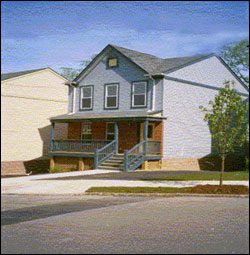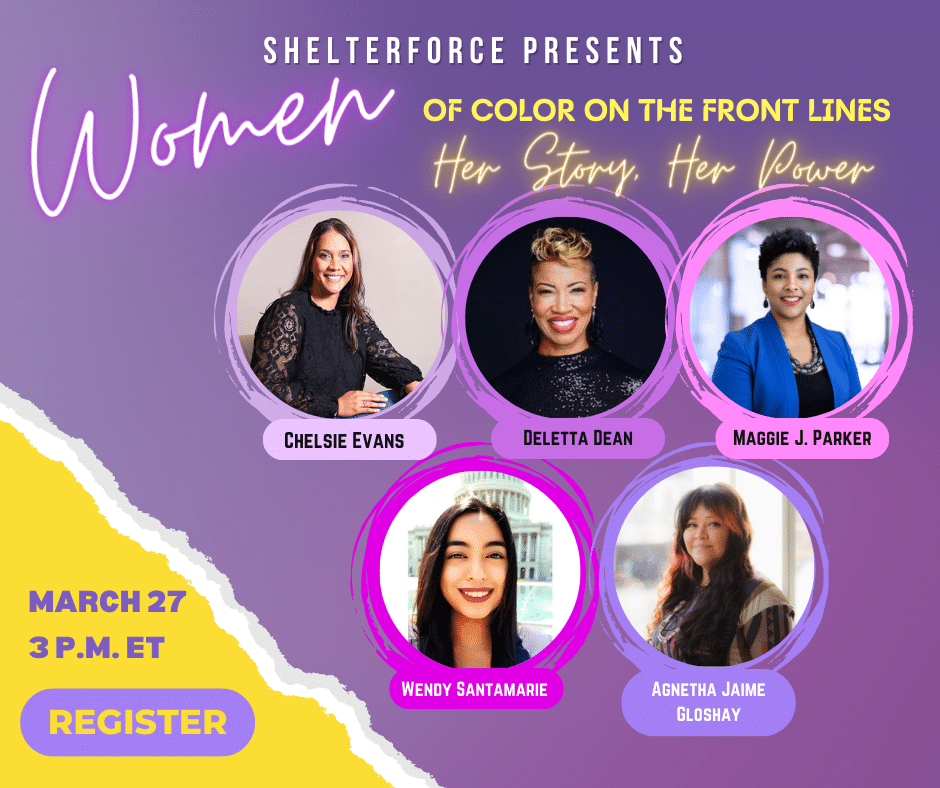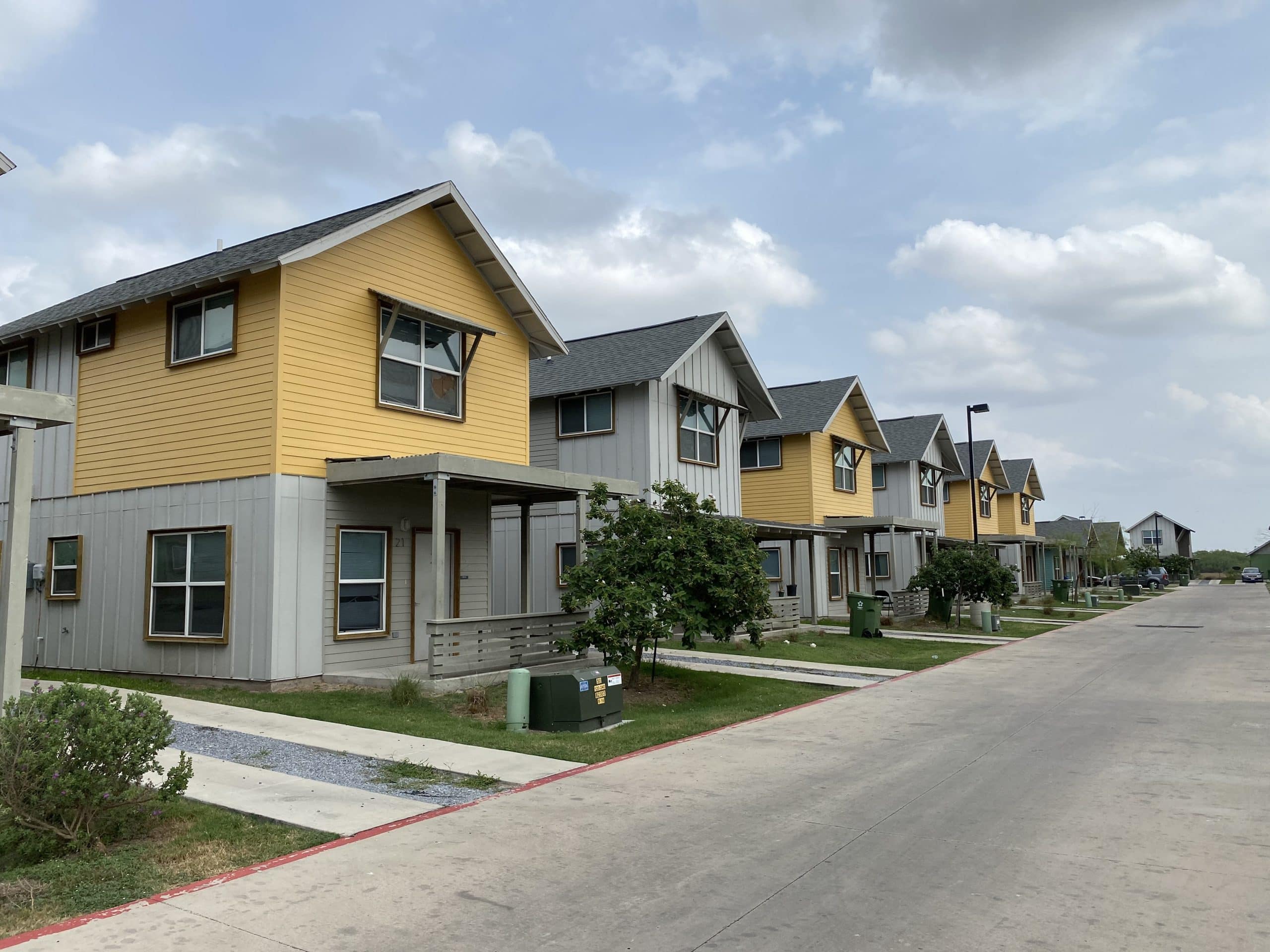
Whenever greeted with the question, “So what do you do?” I often need a minute to rack my brain for a response in layman’s terms. I work for a coalition of community-based and community-development agencies that in turn work for economic justice, equitable investment practices, and sufficient financial resources to revitalize communities. I go to school for “urban studies” with a concentration in “policy and management.” How do I explain something so technical and wonk-ish to John and Jane Q. Public?
I usually tell folks I work for a neighborhood revitalization agency. “Which neighborhood?” is usually the next question, and then I try to explain multi-neighborhood coalition-based advocacy. Occasionally I am successful.
“You do urban redevelopment?” Well, if you look at the words urban redevelopment, I suppose it technically is, except the mistakes made during that period are so heinous and have had such negative long-term repercussions that most of us working in community development would prefer not to be associated with urban redevelopment, per se.
“You’re an urban planner?” Urban planning is a part of it — certainly a space can be physically designed for livability and equity — except that discipline more and more veers toward the architectural, and elements of landscape architecture are also involved. So urban planning is part of it, but not all of it.
“You do community organizing?” At this point, local political buffs will usually mention ACORN, and my response is that community organizing is a part of it, and working with the private sector and different governments to align disparate stakeholders and shape equitable, community-driven policy is also part of it.
“You do affordable housing?” Yes. It’s also market-rate housing (sometimes), and economic development, and workforce development, and youth development, and small business development, and minority/female-owned small-business development.
(And, although my particular organization focuses on low- to moderate-income neighborhoods, plenty of high-income neighborhoods have community development groups that help to beautify their main streets and advocate for appropriate resources.)
“You work for the city?” No, but I work with the city. I actually work for a 501©3 nonprofit, which in part is funded by the Federal government via HUD via the city, and by foundations, and by banks, and by individuals.
I suppose I could say I work for a community development corporation — and then try to explain what one of those is—except I actually work for a coalition of 21 community groups, and only some of those are community development corporations which engage in the real estate aspect of neighborhood revitalization. But even talking about “community development” can mean different things in different places. In the county where I grew up, the “Community Development Agency” is countywide, run by the county government, and focuses on allocating CDBG money to health and human services agencies as well as funding home repairs and emergency heating and electricity for low-income seniors. And that’s an important aspect of community development, but again, that’s not all of it.
Meanwhile, the rest of my organization’s members are community-based agencies that focus more on providing a framework for participatory democracy and collective advocacy on the part of neighborhood residents. While most of the brick-and-mortar groups have “development” in their names, the rest call themselves “citizens councils,” “concerned citizens corporations,” and the like.
Now, after all this, what is community development? Does “community” describe “development” – as in, physical (re)development that is community driven? Or is it the “development” of “community” – the process of creating that abstract, nebulous idea, concept, and series of relationships?
A process of developing or building up communities of men and women to enable empowerment, self-sufficiency and control over their environment…entails a variety of activities done within or on behalf of a community to add to or enhance it in some way. …
Community development, informally called community building, is a broad term applied to the practices and academic disciplines of civic leaders, activists, involved citizens and professionals to improve various aspects of local communities.
We work for CDCs, CBOs, local governments, state governments, regional governments, county governments, foundations, banks, colleges and universities, chambers of commerce, and others. We invest in places, things, regions, and people. We leverage outside resources and try to bolster communities’ own resources. So how do we bring all these disparate processes together? What exactly is it that we’re all doing?
The idea I’ve settled on, as much as it lacks specificity, is engaging in the creation of “communities of choice.” That is, places that are livable and equitable — safe, convenient to amenities such as goods, services, and schools, affordable to low-income residents and attractive to high-income residents, and incorporate diversity of not only income but also race, religion, and every other status (federally protected or not). And to me, creation of these places entails providing neighbors with the tools to create these kinds of places themselves.
But, keeping in the spirit of community development itself, this definition should be guided by neighbors and professionals themselves, and not dictated by others. And it behooves us to come up with a common language for talking about what we do, lest community development continue to be an exotic and oft-overlooked aspect of the social justice movement.
How do you talk about what you do?





Comments